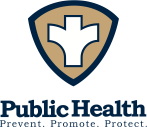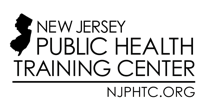Archives: Emergency Preparedness

Sheltering from the Storms: Collaborative Shelter Creation and Management in 2011
November 14, 2011 George T. DiFerdinando, Jr., MD, MPH and Kevin Sumner, MPH
The current and proposed standards of public health sheltering, both for natural (i.e., flood) and man-made (i.e., nuclear/radiation) events are reviewed. Within that context, the current local public health experience in NJ with sheltering, and comment on what can be expected in the future.
Public Health Preparedness and Response: Cultural Competency in Emergencies
September 14, 2011 George T. DiFerdinando, Jr., MD, MPH, FACP
A key behavior for public health workers is to be able to cultural competency knowledge, skills, and attitudes (KSA) during both preparedness and crisis response, for the many populations in New Jersey, the region, and throughout the US. This awareness and skills training will inform participants of the core concepts of cultural competency
Radioactivity, Fission and Radiation: Risks vs. Benefits to Humanity
May 17, 2011 Roger W. Howell, PhD
Public Health and Preventive Medicine Grand Rounds
Dr. Howell discusses the different types of radiation, how its measured and its potential impact on humans, including the effects on workers in Japan.
April 28, 2011 George T. DiFerdinando, Jr., MD, MPH, FACP
This awareness training will inform participants about the Public Health Preparedness and Response Core Competency and the proficiency level within each that mid-level public health workers are expected to demonstrate to assure readiness.
Challenges in the Response to the 2009 Influenza Pandemic: What’s Next?
November 3, 2011 Kathleen F. Gensheimer, MD, MPH
Public Health and Preventive Medicine Grand Rounds
A look at the national picture of the surveillance and response effort to the H1N1 Influenza Pandemic




















Poison Center and Public Health Partnerships
February 7, 2012 Stephen M. Marcus, NJ Poison Information & Education System
Using real cases from the database of the New Jersey Poison Control Center we will explore the interaction between a regional poison center and the public health infrastructure in identifying emerging toxicological problems. Through such interaction we hope to mitigate effect and prevent further damage to the health and welfare of the citizens of the state.
Super Storm Sandy: Impact and Recovery - Efforts in NJ One Year Later
November 18, 2013


